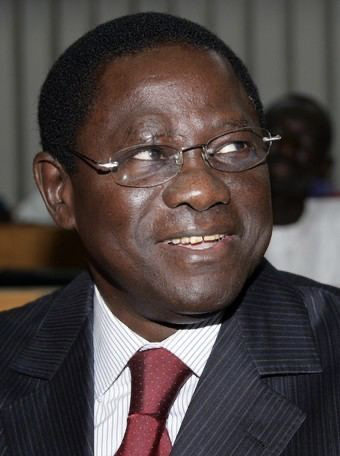David Mandessi Diop - Prominent figure in Négritude literature

| David Mandessi Diop was born on July 9, 1927, in Bordeaux, France, to a Cameroonean mother and a Sengalese father. Although he grew up in France and lived most of his life there, Diop spent significant time living and teaching in Africa, which helped reinforce his opposition to European society. Consequently, many of his poems discuss his empathy with Africa and the movement for independence from French Colonialists. Influenced by Aimé Césaire, his verse first appeared in the journal Présence Africaine and in Léopold Senghor's Anthologie de la nouvelle poésie négre et malgache. Diop's poems in Coups de pilon (1956; "Pounding"), his only surviving collection, are angry protestations and depictions of the evils of slavery and colonialism. In 1960, Diop was killed in an airplane crash traveling home to France from Dakar, Senegal. Diop had only published one volume of poems and a number of reviews and essays, but at the age of thirty-three, he had already established himself as an important writer in the Negritude movement and one of the most highly regarded men of letters in West Africa. |
AfriqueAfrique mon Afrique Afrique des fiers guerriers dans les savanes ancestrales Afrique que me chantait ma grand-mère Au bord de son fleuve lointain Je ne t’ai jamais connue Mais mon regard est plein de ton sang Ton beau sang noir à travers les champs répandu Le sang de ta sueur La sueur de ton travail Le travail de l’esclavage L’esclavage de tes enfants Afrique dis-moi Afrique Est-ce donc toi ce dos qui se courbe Et se couche sous le poids de l’humilité Ce dos tremblant à zébrures rouges Qui dit oui au fouet sur les routes de midi Alors gravement une voix me répondit Fils impétueux cet arbre robuste et jeune Cet arbre là -bas Splendidement seul au milieu de fleurs blanches et fanées C’est l’Afrique ton Afrique qui repousse Qui repousse patiemment obstinément Et dont les fruits ont peu à peu L’amère saveur de la liberté. | AfricaAfrica my Africa Africa of proud warriors in ancestral savannahs Africa of whom my grandmother sings On the banks of the distant river I have never known you But your blood flows in my veins Your beautiful black blood that irrigates the fields The blood of your sweat The sweat of your work The work of your slavery Africa, tell me Africa Is this your back that is unbent This back that never breaks under the weight of humilation This back trembling with red scars And saying no to the whip under the midday sun But a grave voice answers me Impetuous child that tree, young and strong That tree over there Splendidly alone amidst white and faded flowers That is your Africa springing up anew springing up patiently, obstinately Whose fruit bit by bit acquires The bitter taste of liberty. |

„I love this poem because it calls to memory events in Africa’s historical past, but also embodies the hope for a different and better future. The poet eulogizes the tenacity of the continent and its inhabitants. The rendition of this poem is always an emotional experience for me because it captures the experiences that constitute part of Africa’s identity today, as well as the belief that a ‘rebirth’ is achievable.“ Edidiong Charles Ibanga, Student European Interdisciplinary Master African Studies (EIMAS) |

